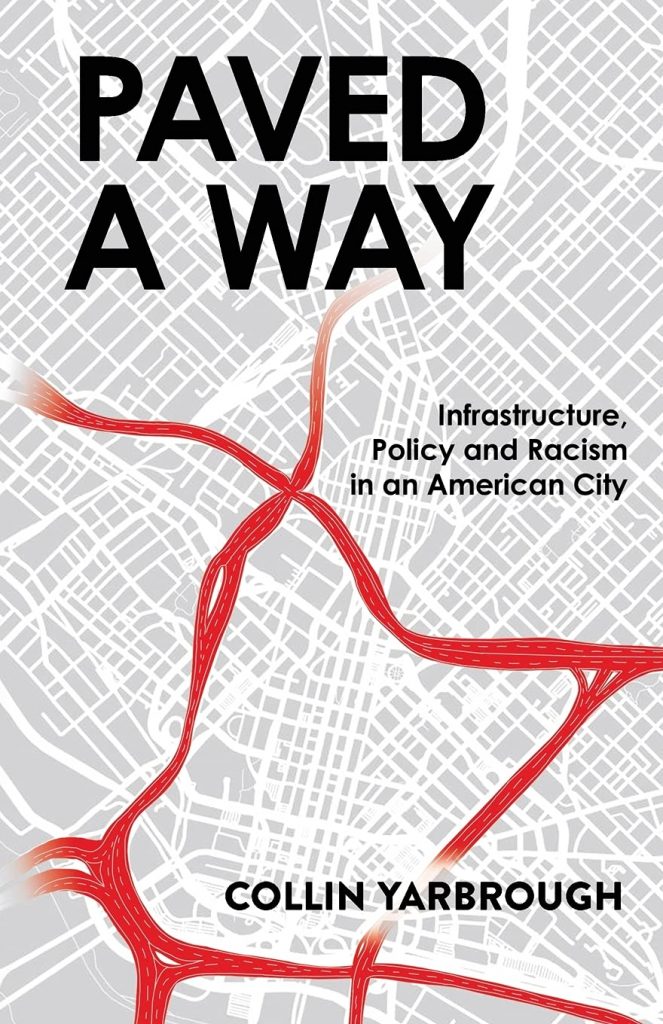A Lake Highlands resident’s nonfiction book about how highway construction erased neighborhoods of color in Dallas was released today.
Collin Yarbrough is a Lake Highlands High School alumnus and SMU grad student who also owns Full Circle Bakery with his mom, Judy. His book, Paved A Way, has the subtitle “Infrastructure, Policy and Racism in an American City.”
He started working on it in May 2020, after turning in a paper about the history of Central Expressway.
A New York Times article about how the agency now known as the Texas Department of Transportation moved 1,127 graves from a bygone freedman’s town to expand the highway in 1990 astonished him.
“I just remember being so outraged by that,” he says. “That we would prioritize infrastructure over the rest and peace of Black bodies. I can almost guarantee that if this had been a white cemetery, it would’ve been a different story.”
Some graves from that cemetery were buried under the highway’s concrete near Lemmon Avenue in the 1940s.
Yarbrough started to learn more about freedman’s towns and that several were established in Dallas by former slaves after the the American Civil War.
“I go to SMU. I’ve spent so much of my free time in Uptown, and I had no idea that I was standing in this erased freedman’s town,” he says. “Every highway in Dallas that I’ve researched, there was always a story of black and brown voices being erased.”
That was more than he could fit in a 2,000-word research paper, so his professor suggested he write a book.
He received research help from the Dallas Mexican American Heritage League, the Tenth Street Residential Association and other neighborhood groups.
Here’s the book-jacket description:
“Acknowledgement is the first step in the journey of unpacking the ways our cities are built with systems of power and erasure. True reconciliation requires acknowledgement and acceptance of past injustice. In that journey, we are only at the beginning.”
Paved A Way tells the stories of five neighborhoods in Dallas and how they were shaped by racism and economic oppression. The communities of North Dallas, Deep Ellum, Little Mexico, Tenth Street, and Fair Park look nothing like what they did during their prime, and author Collin Yarbrough argues that their respective declines were intentional—that their foundations were chipped away over time.
Systemic oppression is not contained within Dallas—it can be found throughout the United States. As Collin Yarbrough writes in his introduction, “Dallas is its own city, and Dallas is every city.” With this book, readers throughout the United States will learn to see how nearby cities were shaped by injustice, and how they can play a role in reversing the process.
It was published by New Degree Press, via The Creators Institute, a partnership that SMU has with Georgetown University to help first-time authors find publishers.
The book is currently available on Amazon, where it is No. 1 in its category today, and Yarbrough is working to get it into local bookstores.
He finishes his master of arts in sustainability and development this summer and hopes to start a doctorate program in the fall to pursue a PhD in transportation systems and urban economics.
Previous to his higher academic pursuits, Yarbrough worked as a pipeline engineer for Atmos for seven years.
“This is becoming my life’s work,” he says. “Equitable community engagement. We see this now: Stakeholders not being engaged and people not having the voice to protect themselves.”






